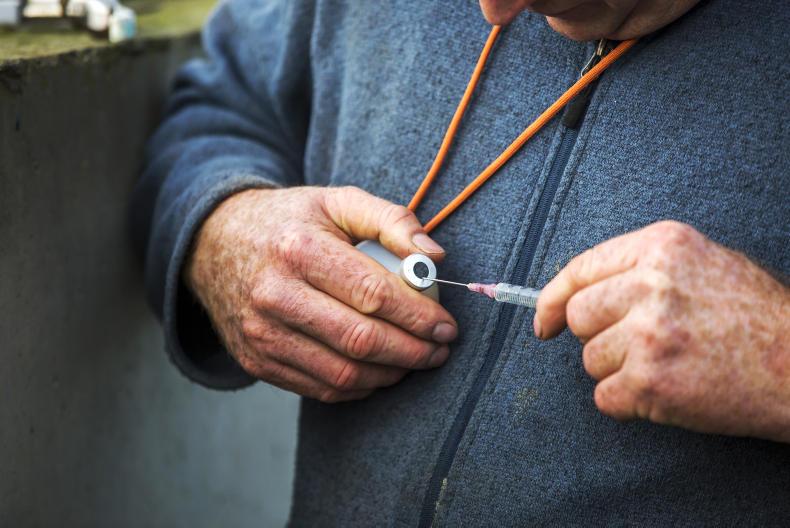Farmers have reacted with disbelief to the news that a veterinary practice in Donegal is charging €500 for an out-of-hours farm visit.
Callers to the Donegal Animal Hospital in Letterkenny are greeted by a messaging service after 6pm.
“The fee to have an emergency treated after 6pm and before 9am reflects the additional expense incurred hiring an on-call locum vet which are in very short supply,” the message says. “This fee is a minimum €200 for an animal seen at the animal hospital and €500 for an animal on-farm.”
Callers are given a Dublin number to ring at the end of the message which “will put you in a queue of emergency calls to the on-call vet”.
Listen to "Out of hours vet service" on Spreaker.
The IFA says that this has been caused by the Minister for Agriculture’s “inaction” and the recent change in ownership of the practice in question.
UK corporate veterinary company, Independent Vetcare (IVC) confirmed to the Irish Farmers Journal that Donegal Animal Hospital joined its company in January 2019. However, it said that its practices are all run locally.
“The Minister for Agriculture and the VCI must take leadership and not allow a situation to develop where farmers in Ireland cannot get out of hours service,” CEO of Veterinary Ireland Finbarr Murphy said, calling for the VCI review on corporate ownership of practices to be brought to a speedy conclusion.
Ownership
Gerald Roarty runs the practice in question and he says the fees are nothing to do with the change in ownership and the decision is solely his.
He added that two new vets will join his practice on 12 March and at that point fees will return to normal for out-of-hours calls. However, he says that the overall shortage of large animal vets needs to be addressed in the long term.
Read Gerald Roarty’s full response in letters, p30
Farmer viewpoint
Adrian Gallagher, sheep farmer, Falcarragh, Co Donegal said: “It’s a hefty cost for any farmer to pay but we’re lucky to have a vet in Donegal. It’s a 100km round trip for me to the nearest vet. In Australia or New Zealand, you wouldn’t have one that close.
“This has been coming for a long time. There’s a shortage of large animal vets, particularly in the northwest. It creates a good Knowledge Transfer opening for farmers to learn more about medicines and identifying problems.”






 This is a subscriber-only article
This is a subscriber-only article










SHARING OPTIONS: